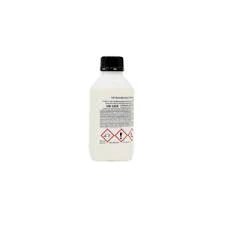Understanding Scale Formation and the Role of Corrosion Inhibitors in Chemical Processes
Scale and Corrosion Inhibitor Chemicals Essential Solutions for Industrial Applications
In various industrial processes, particularly in sectors such as oil and gas, power generation, and water treatment, the phenomena of scale formation and metal corrosion present significant operational challenges. These issues not only lead to equipment failures and maintenance costs but also reduce the overall efficiency of processes. To combat these problems, the use of scale and corrosion inhibitor chemicals has become a crucial aspect of industrial operations.
Understanding Scale and Corrosion
Scale refers to the hard, mineral deposits that accumulate on surfaces in contact with water. These deposits are primarily composed of calcium carbonate, barium sulfate, and other inorganic minerals that precipitate out of the water, often under conditions of high temperature and pressure. This buildup can lead to reduced heat transfer efficiency, clogged pipes, and ultimately, increased energy consumption.
Corrosion, on the other hand, is the gradual destruction of materials, usually metals, due to chemical reactions with their environment. Common forms of corrosion include uniform corrosion, pitting, and galvanic corrosion, each of which can severely compromise the integrity of industrial equipment. Factors such as moisture, acidity, and the presence of oxygen can accelerate the corrosion process, leading to costly repairs and downtime.
The Role of Inhibitor Chemicals
Scale and corrosion inhibitor chemicals are specifically designed to mitigate these issues. They work through various mechanisms to prevent the formation of scale and inhibit the corrosive effects of water and other chemicals. By employing these inhibitors, industries can prolong the lifespan of their equipment, reduce operational costs, and enhance safety.
Types of Inhibitors
scale and corrosion inhibitor chemicals

1. Scale Inhibitors These chemicals, such as polyacrylic acids and phosphonates, function by interfering with the crystallization process of minerals in water. They modify the structure of scale-forming minerals, preventing them from adhering to surfaces. Consequently, this helps maintain the efficiency of heat exchangers, boilers, and cooling towers.
2. Corrosion Inhibitors Corrosion inhibitors can be categorized into several types - Anodic Inhibitors These substances, including chromates and nitrites, tend to precipitate on the surface of the metal, forming a protective layer that reduces corrosion. - Cathodic Inhibitors These compounds, such as zinc and calcium, work by influencing the electrochemical processes that lead to corrosion. - Mixed Inhibitors These inhibitors, like amines and phosphates, provide protection against both anodic and cathodic processes, making them versatile for various applications.
Application and Benefits
The application of scale and corrosion inhibitors extends across numerous industries. In the oil and gas sector, inhibitors are essential in preventing scale and corrosion in pipelines and processing equipment, which operate under extreme conditions. In power generation, maintaining the efficiency of cooling systems and boilers is critical; thus, inhibitors play a vital role in preserving these components. In water treatment facilities, they ensure that infrastructure remains free of scale and corrosion, thus enhancing water quality and system longevity.
The benefits of using scale and corrosion inhibitors are manifold. Firstly, they significantly extend the lifespan of industrial equipment, leading to lower maintenance and replacement costs. Secondly, by reducing downtime associated with repairs, companies can enhance productivity and improve energy efficiency. Furthermore, the use of inhibitors contributes to environmental sustainability; by preventing leaks and failures in industrial systems, they mitigate the risk of harmful substances entering the environment.
Conclusion
In summary, scale and corrosion inhibitors are indispensable tools in modern industrial processes. By understanding their functions and benefits, industries can effectively address the challenges posed by scale formation and corrosion. Investing in these chemicals not only safeguards equipment and reduces operational costs but also promotes sustainable practices. As technology continues to evolve, the development of more effective and environmentally friendly inhibitors will play a crucial role in enhancing industrial efficiency and safety in the years to come.
-
Water Treatment with Flocculant Water TreatmentNewsJun.12,2025
-
Polymaleic AnhydrideNewsJun.12,2025
-
Polyaspartic AcidNewsJun.12,2025
-
Enhance Industrial Processes with IsothiazolinonesNewsJun.12,2025
-
Enhance Industrial Processes with PBTCA SolutionsNewsJun.12,2025
-
Dodecyldimethylbenzylammonium Chloride SolutionsNewsJun.12,2025





